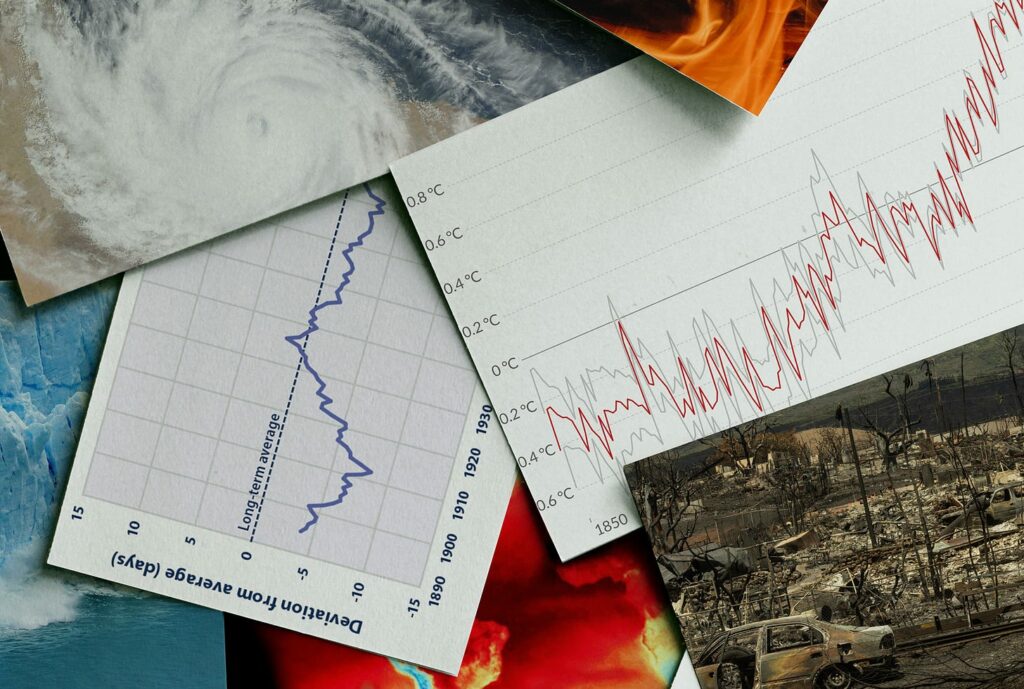We frequently refer sarcastically to the journalistic phrase “scientists say”, which is often appended to the end of a sentence in which a non-scientist journalist writes some alarmist gibberish and adds, in lieu of evidence, “scientists say” or for variety “experts say”, supposedly putting the point beyond question. As in, “Climate change behind increases in extreme rain danger, scientists say.” The problem being, they generally don’t say what journalists, activists and politicians say they say. So we are going to turn the trick on its head, by reporting things scientists actually say, based on what their research and data tell them. To start: “Our result is that the transient climate response – the short-term warming – in the troposphere is 1.1 degrees C at the point in time when carbon dioxide levels double. This is not a very alarming number. If we perform the same calculation on the climate models, you get a figure of 2.31 degrees C, which is significantly different. The models’ response to carbon dioxide is twice what we see in the real world. So the evidence indicates the consensus range for climate sensitivity is incorrect.” Scientists say.
Of course part of the problem with “scientists say” is that all scientists don’t say the same thing. But the quote is drawn from a presentation by an important expert on climate, John Christy, Professor of Atmospheric Science at the University of Alabama in Huntsville, in a presentation for the Global Warming Policy Forum at the UK Parliament. He was presenting a summary of several of his recently-published papers that have tested climate models against real world observations.
One such paper, which we already discussed here, was a follow-up on a study he and coauthor Richard McNider did in the late 1990s, which had showed that the warming attributable to greenhouse gases in the lower atmosphere was about 0.1 degrees per decade. In the updated paper in 2017 they found the trend had remained the same, about 0.1 degrees per decade, which implies doubling the CO2 concentration in the atmosphere would yield about 1.1 degrees of warming, less than half the model average of 2.3 degrees C.
In his Parliamentary presentation Christy went on to discuss additional work he coauthored that focused on model-projected warming in the troposphere over the tropics, where the models say we should be able to observe an especially clear signal of the strength of greenhouse warming. Of the models’ warming rate he notes: “the average trend is 0.44 degrees C per decade. This is quite fast: over 40 years, it amounts to almost 2 degrees C, although some models have slower warming and some faster. However, the real-world warming is much lower; around one third of the model average... the models are warming too fast. The exception is the Russian model, which has much lower sensitivity to carbon dioxide, and therefore gives projections for the end of the century that are far from alarming. The rest of them are already falsified, and their predictions for 2100 can’t be trusted. If an engineer built an aeroplane and said it could fly 600 miles and the thing ran out of fuel at 200 and crashed, he wouldn’t say ‘Hey, I was only off by a factor of three’. We don’t do that in engineering and real science. A factor of three is huge in the energy balance system. Yet that’s what we see in the climate models.”
Sadly in this case there are scientists who do not say who should, namely the Intergovernmental Panel on Climate Change. Christy notes that in their last assessment report the IPCC tried to sweep the whole issue of models being falsified by observations under the rug. Christy insisted they address it, so they buried in an online supplement a diagram showing that models show far too much warming. And the newest batch of models coming out, rather than fixing the bias problem, are getting worse. So scientists don’t always say, but nature will have the last word.


